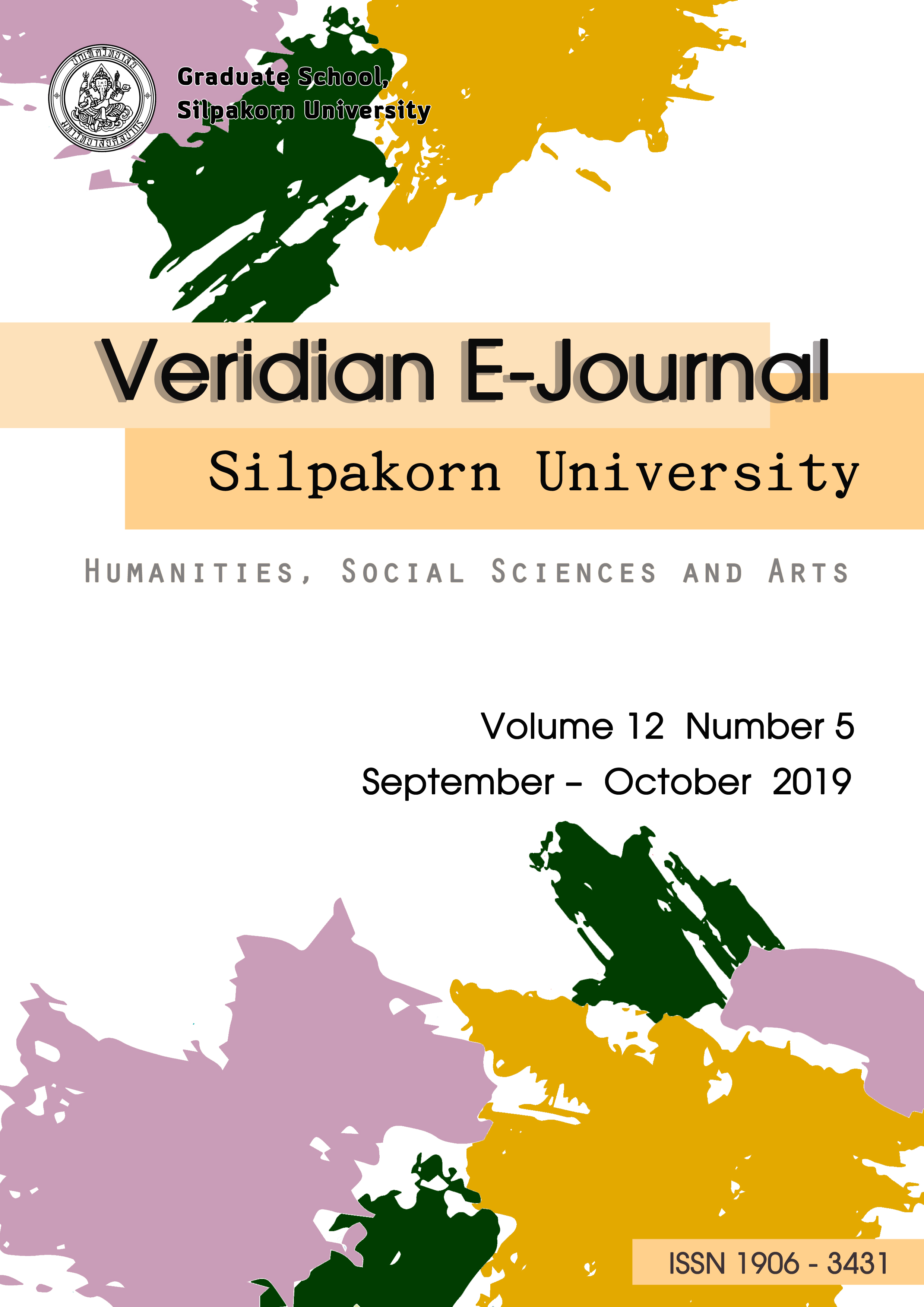อัตลักษณ์พื้นที่ทางเศรษฐกิจของกลุ่มวัฒนธรรมย่อยคนคุ้ยขยะ (IDENTITY OF SUBCULTURE OF WASTE PICKERS ECONOMIC SPACE.)
Main Article Content
บทคัดย่อ
บทความนี้มีวัตถุประสงค์เพื่อศึกษากลุ่มวัฒนธรรมย่อยคนคุ้ยขยะ โดยใช้กรอบแนวคิด ทฤษฎี เรื่องของอัตลักษณ์ ในองค์ประกอบตัวชี้วัด 3 ประการ ได้แก่ ลักษณะที่ปรากฏรูปแบบการดำเนินชีวิตและการประพฤติปฏิบัติ และภาษาของกลุ่มที่แสดงผ่านพื้นที่ทางเศรษฐกิจ โดยใช้ระเบียบวิธีวิจัยเชิงคุณภาพ เป็นการศึกษาวิจัยที่นำทฤษฎีและวิธีในการศึกษาทางสังคมวิทยาและมานุษยวิทยาในประเด็นความเป็นวัฒนธรรมย่อยนำมาบูรณาการร่วมกับเทคนิควิธีในการศึกษาสถาปัตยกรรมพื้นถิ่น ขั้นตอนการวิจัยประกอบด้วยการสังเกตแบบไม่มีส่วนร่วม การสัมภาษณ์ การสำรวจ และการทำรังวัด
ผลการศึกษาได้ข้อค้นพบว่า อัตลักษณ์ในพื้นที่ทางเศรษฐกิจของกลุ่มวัฒนธรรมย่อยคนคุ้ยขยะมีกระบวนการสร้างที่มีปัจจัยจากการประกอบอาชีพ สะท้อนผ่านสัญลักษณ์ต่างๆ ก่อให้เกิดอัตลักษณ์ร่วมของกลุ่มคนคุ้ยขยะทั้งในด้านของกายภาพและรูปแบบแนวความคิดต่าง ๆ ซึ่งเป็นตัวบ่งชี้ของลักษณะเฉพาะทางอาชีพของกลุ่มที่มีความโดดเด่นและแตกต่างกับบุคคลหรือกลุ่มอื่นๆ ในสังคม เป็นผลรวมของปัจจัยทางวัฒนธรรมทางอาชีพ ที่เกิดเป็นภาพสะท้อนภายใต้ปัจจัยทางวัฒนธรรมทางอาชีพที่สัมพันธ์กับรูปแบบของสถาปัตยกรรม
The objective of the article is to study the Subculture of waste picker group by using the identity conceptual framework with 3 indicators: appearance, lifestyle and their language which are shown through the economic spaces. Researcher used qualitative research methodology to study the theories, methods of sociological and anthropological studies integrated with techniques in the study of vernacular architecture. The research process consists of non-participant observation, interviewing, surveying and measuring.
The results reveal that Identity of economic space of the waste pickers group have a producing process from their occupation factors which is reflected through various symbols and that is the cause of collective identity of the waste pickers group, both in terms of physical and conceptual forms, which are indicators of the professional characteristics of the group that are distinguished and different to other people or groups in society and it is the overview sum of cultural factors in a career that is a reflection of the cultural factors of the profession related to the architecture.

